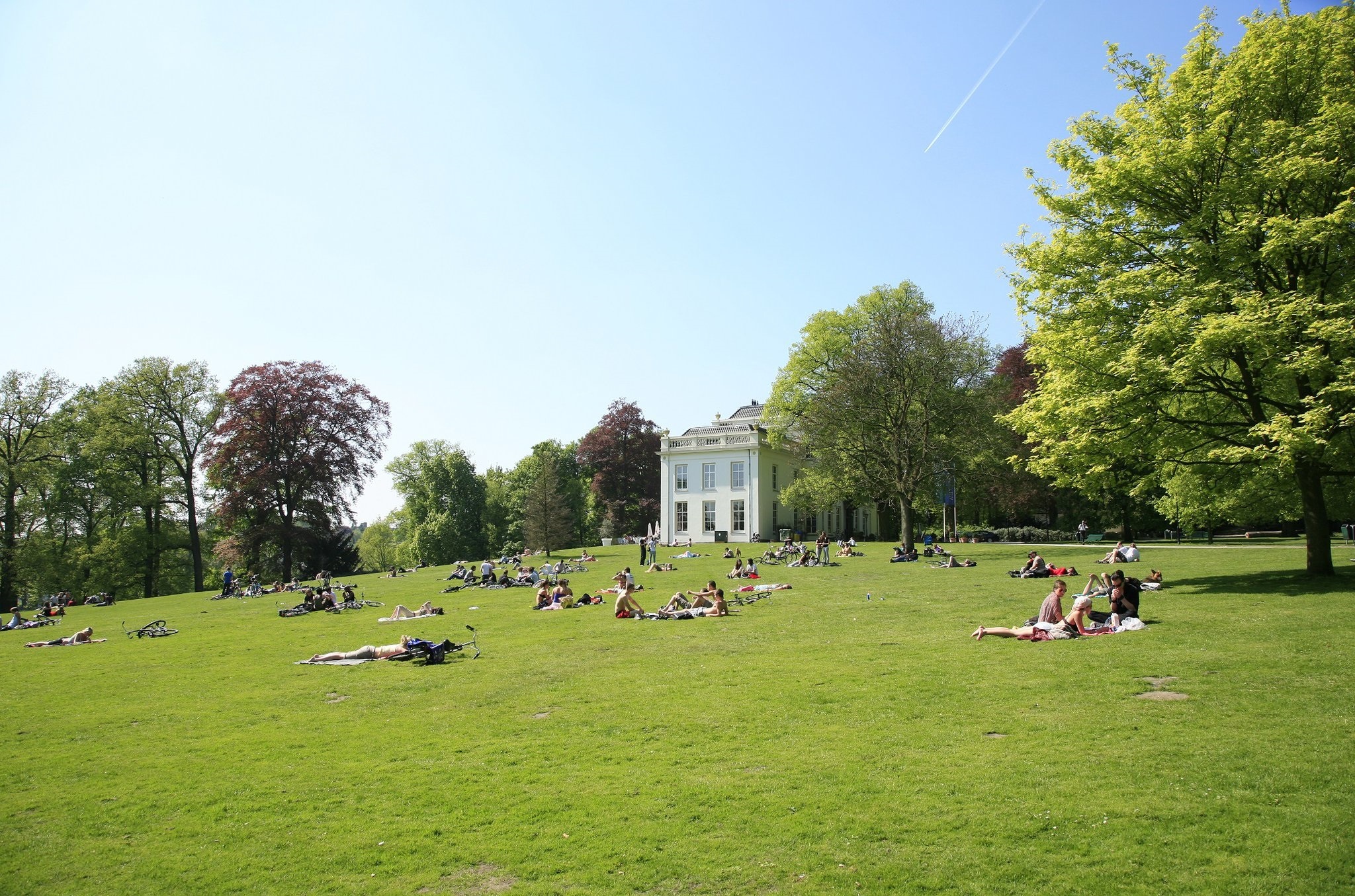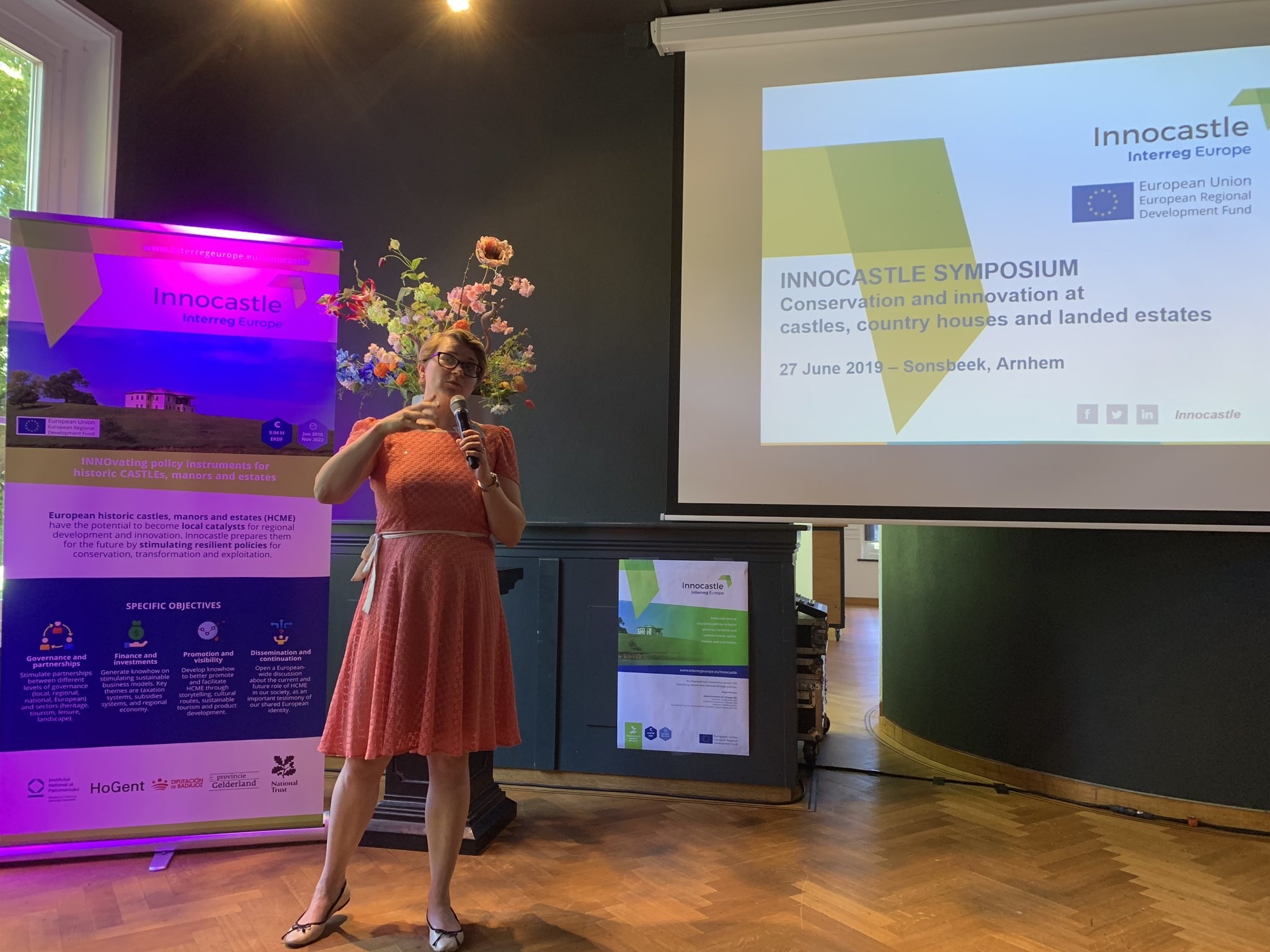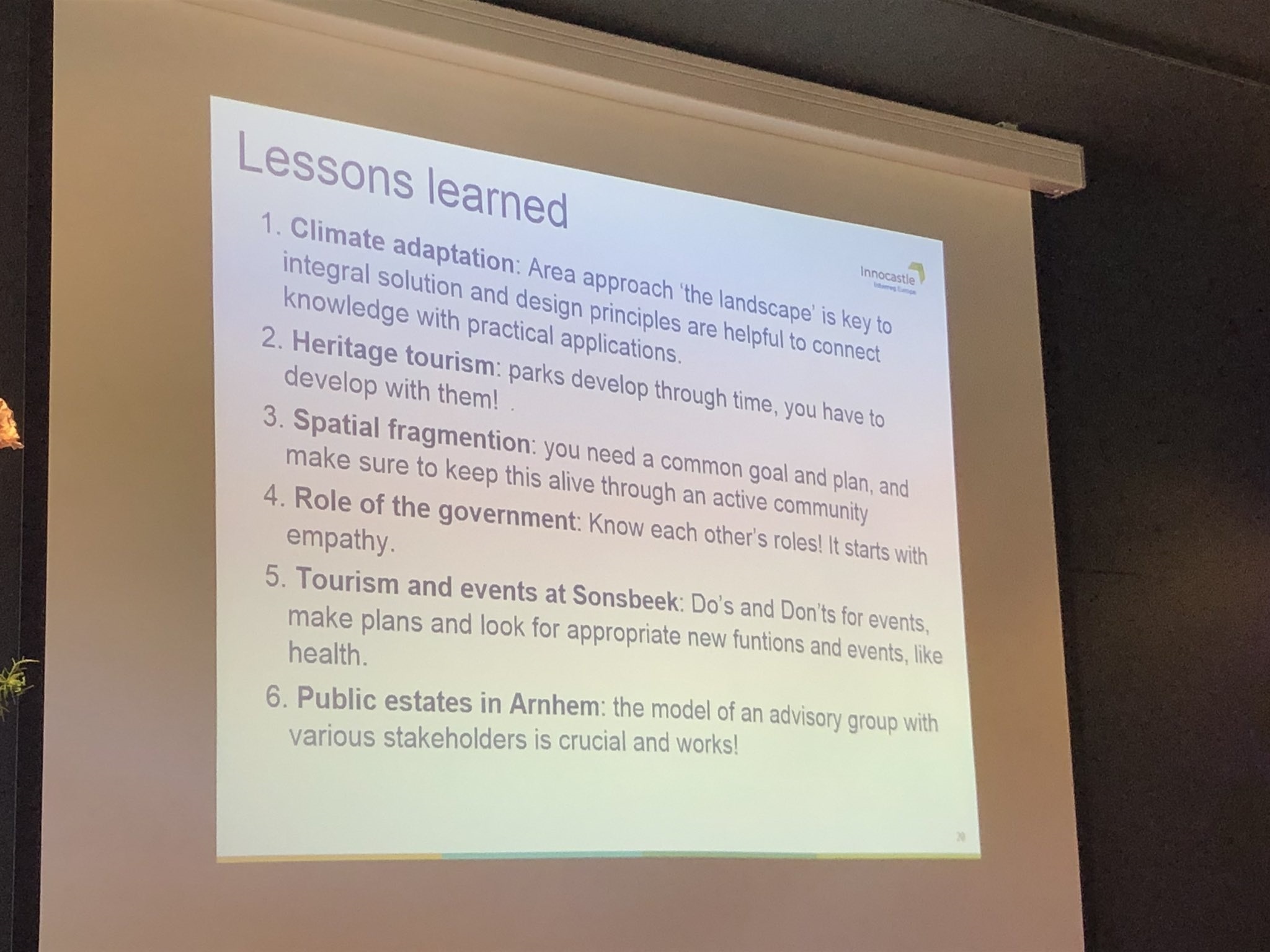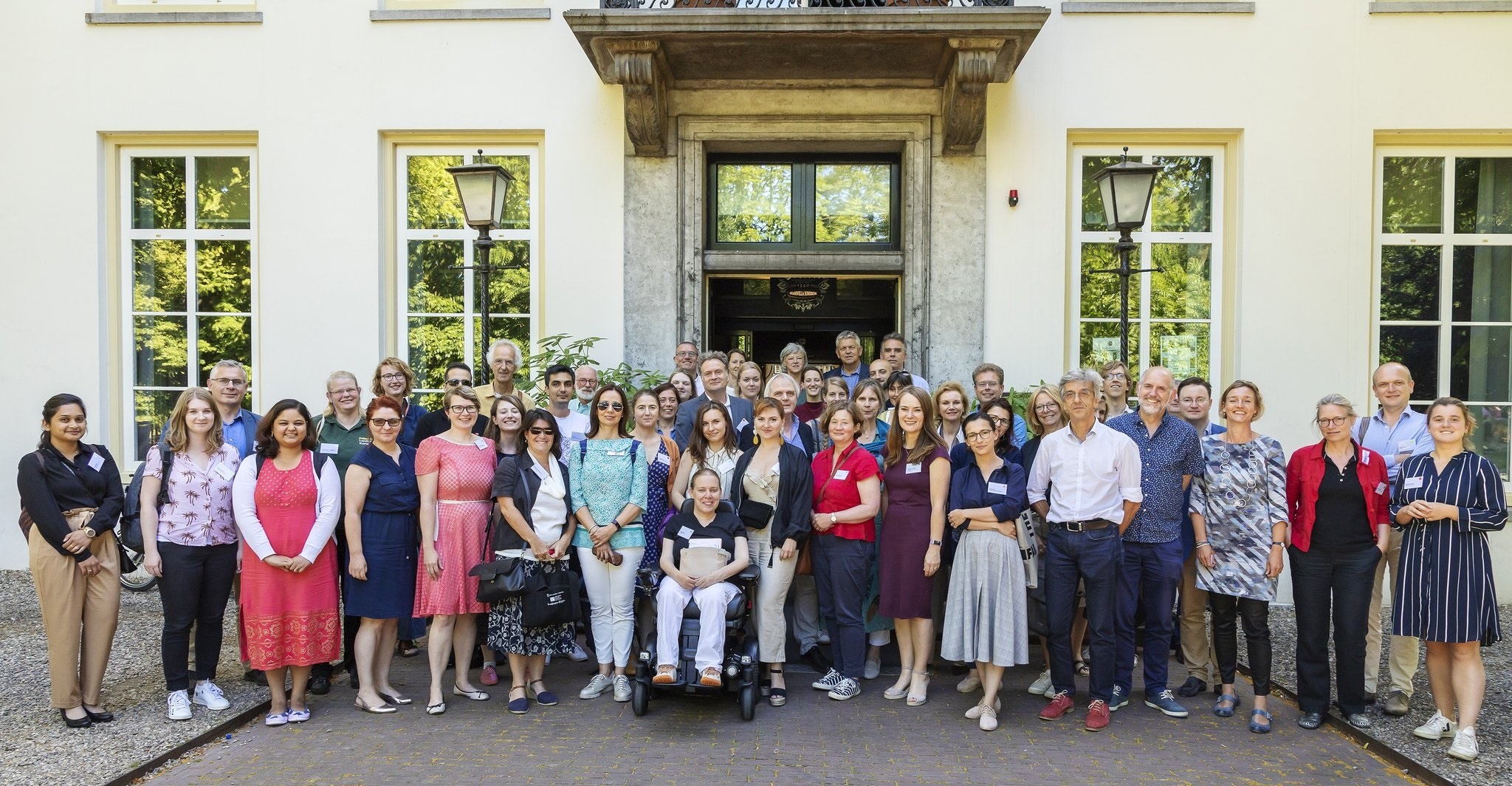-
Sonsbeek Symposium (Weekly blog, 30 June 2019)
Posted on June 30, 2019A blog by Catherine Leonard, INTO Secretary-General
Sonsbeek sitting rooms*
On the second day in Gelderland, we joined a symposium with a number of other stakeholders. (More about our incredible first day in Gelderland this blog.) It took place at Villa Sonsbeek, a beautiful estate on the outskirts of Arnhem. It is Sonsbeek that joins up to the Gelderland Trust property, Zypendaal, creating a huge green lung for the city. And Sonsbeek did not disappoint. The property was full of people the day we visited. Cycling, walking, soaking up the sun – a really amazing public park.

Villa Sonsbeek, Arnhem, the Netherlands * Providing ‘open-air sitting rooms for the poor’ was one of Octavia Hill’s reasons for establishing the National Trust
Everyone welcome
It was brilliant to hear from Jeroen Glissenaar, the park manager, about the site’s development over the past twenty years. He said that when he started he could not have imagined beavers in the river, barbecues and sleepovers in the woods. His keys to success were a strong set of ground rules but an openness to new ideas. It was important to make young people feel welcome. If you tell them off and send them away, that gives them an opportunity to rebel. But if you work with them, they will take on responsibility for the site. This was the workshop outcome that resonated most with me.
Adapting a 19th century park for the 21st century
Another closely linked theme was about heritage tourism and spatial design. How to adapt the 19th century park to a modern audience? How to accommodate far more people than it was ever designed for? Yet with far less gardeners and much cheaper maintenance needed. And how to balance good conservation and ecology with amenities like car parks and toilets?
Spatial fragmentation
This theme continued into the workshop about public country estates in Arnhem: how they work together and share an advisory board. Which in turn led into the discussion about fragmentation and multiple ownership. I joined this group to find out more about the spatial approach theory expounded by our partners. So it was really interesting to explore the issues with the group. We agreed that it was important to answer the question: “What’s the problem we’re trying to solve?”. The value of a common goal, good leadership and collaboration amongst the stakeholders were also vital. As was acceptance that progress might take a long time and might be messy and/or non-linear.

Elyze Storms-Smeets addressing the Sonsbeek Symposium
Conservation in a changing climate – environmental and political
The fifth workshop was about climate change and everyone agreed that landscape was the key to the solution. A regional and multi-scale approach was recommended, alongside a design atlas of possible solutions. The participants highlighted how useful it was to have international perspectives from the Spanish and Romanian Innocastle partners.
Lastly, delegates discussed policy and the role of governments. This sounded quite a fun workshop with some interesting roleplay techniques which the Innocastle partners said they would use at home! The importance of relationships and empathy was emphasised. This was not a written agreement but a long-term personal rapport. The key message to government was ‘Don’t start with the rules, start with ideas’. And to owners ‘Don’t start with fixed plans, start with ideas’. Comparisons between decentralisation in Flanders and Romania were made. And one recommendation was to get students in to help you to think outside the box.
Summing up
What stood out for me throughout the two days was firstly the warm welcome. ‘Open arms’ to the public but also across the sector (and beyond). Perhaps a sort of ‘open hearts and minds’ approach? Secondly, innovation and risk-taking. Not always doing the same thing just because we always have. And taking brave decisions together. I’ve said it before, but people think our work is about the past when it’s actually about the future.

Partnership working
The last thing that struck me, and perhaps most importantly, was collaboration and partnership. Our colleagues in Gelderland work brilliantly together in a true spirit of Dutch tolerance and cooperation. Moreover at all levels: urban/rural; public/private; state/ngo and even internationally through Innocastle and other projects.
All our partners show a willingness to learn and share, to open their minds to new possibilities and to work together to find new solutions for each other. It really is such a privilege to be a part of this project.
School talk
Last week, I gave a lecture to my old school about learning languages. So much material here, I could write a whole other blog. But I ended it by saying this, which I think is important for Innocastle too: We live in uncertain times and, however we choose to do it, by speaking to someone in their native tongue, by being more patient and understanding when people speak English to us or simply by being open, reaching out and connecting to people from other countries, we really must continue to uphold the values of internationalism and solidarity that were so hard fought for in the last century.
A bit heavy for a school lecture and even this blog but this was underlined for me this week with our Innocastle friends.

Delegates at the Sonsbeek Symposium

 44 (0)20 7824 7157
44 (0)20 7824 7157